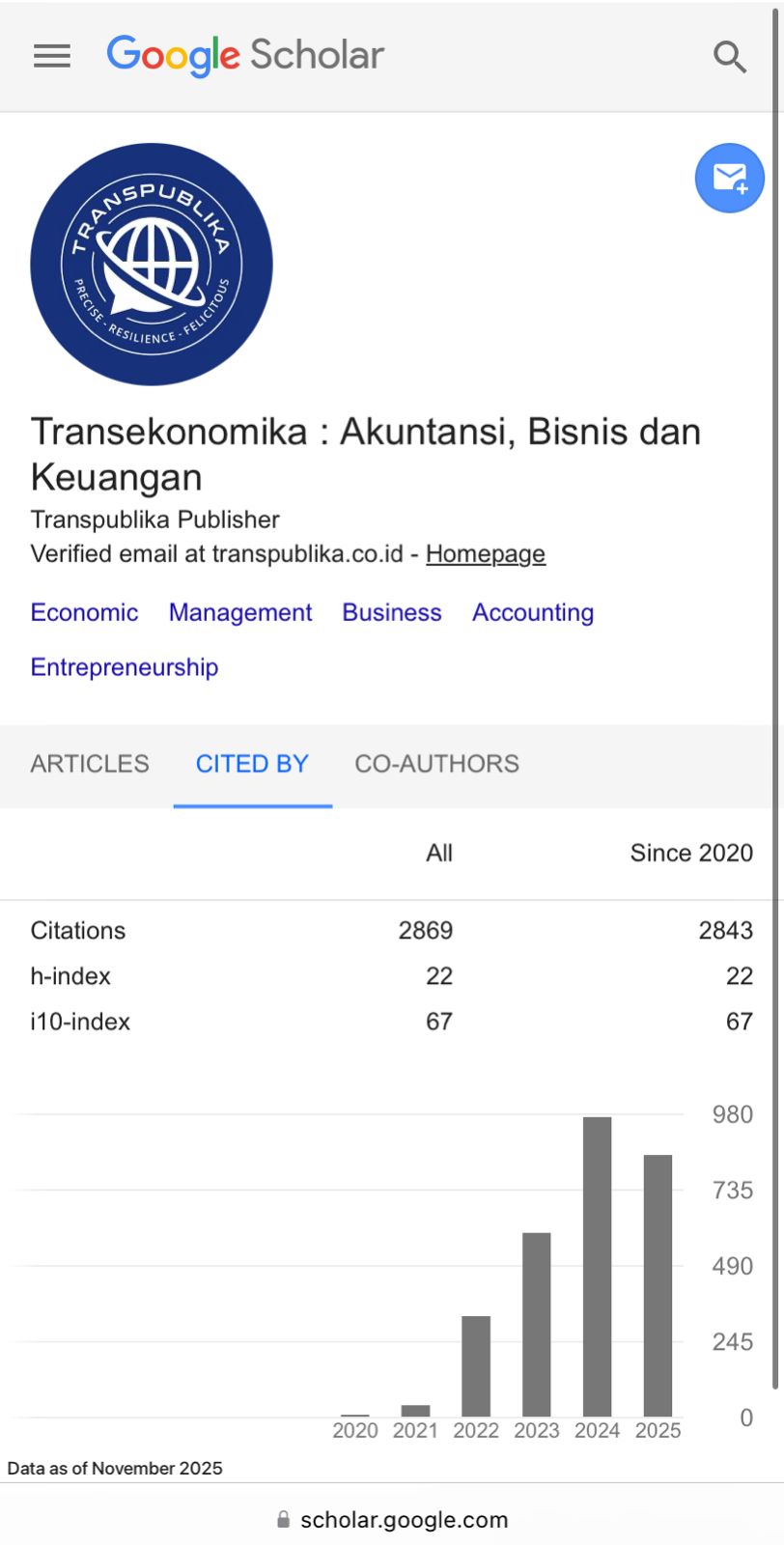PERAN KEPEMIMPINAN DALAM MENGHADAPI FAKTOR-FAKTOR PENDORONG PERUBAHAN DI ERA REVOLUSI 4.0
DOI:
https://doi.org/10.55047/transekonomika.v2i5.169Keywords:
Leadership, Driven Factor, Revolution 4.0Abstract
The world, including one of Indonesia's countries, is currently facing the era of revolution 4.0. A person's success can be seen from the success of the industry that is being developed in this 4.0 era. The success that is owned by a person is also based on the leadership attitude possessed by an identity leader of the company. This study aims to analyze the role of leadership in dealing with the driving factors in the 4.0 revolution era. This type of article is written using qualitative research using literature studies. The literature study carried out in writing this article includes analysis and also studies related to books, articles, journals, or other relevant sources that are continuous with the title. The findings reveal that there are four leadership-type models in facing the 4.0 revolution, including Social Supers, or commitment to do good, Data-Driven Decisives, namely the decision-making process based on data, Disruption Drivers in the form of the courage to make decisions for the long term by considering trends that will occur in the future. Then Talent Champions, which is the process of developing talent or human resources that are ready to use and able to survive disruption.
Downloads
References
Bolden, R., & O’Regan, N. (2016). Digital disruption and the future of leadership: An interview with Rick Haythornthwaite, Chairman of Centrica and MasterCard. Journal of Management Inquiry, 25(4), 438–446.
Haris, M. (2019). Manajemen Lembaga Pendidikan Islam dalam Menghadapi Revolusi Industri 4.0. Mudir: Jurnal Manajemen Pendidikan, 1(1), 33–41.
Lasi, H., Fettke, P., Kemper, H.-G., Feld, T., & Hoffmann, M. (2014). Industry 4.0. Business & Information Systems Engineering, 6(4), 239–242.
Nazir, M. (2005). Metode Penelitian, Bogor: Ghalia Indonesia. Jurnal Pendidikan Agama Islam.
Neugebauer, R., Hippmann, S., Leis, M., & Landherr, M. (2016). Industrie 4.0-From the perspective of applied research. In Procedia CIRP (Vol. 57, pp. 2–7). Elsevier.
Oberer, B., & Erkollar, A. (2018). Leadership 4.0: Digital leaders in the age of industry 4.0. International Journal of Organizational Leadership.
Priatna, T. (2019). Disrupsi Pengembangan Sumber Daya Manusia Dunia Pendidikan di Era Revolusi Industri 4.0. Pusat Penelitian dan Penerbitan UIN Sunan Gunung Djati.
Rumetna, M. S. (2018). Pemanfaatan cloud computing pada dunia bisnis: studi literatur. Jurnal Teknologi Informasi Dan Ilmu Komputer (JTIIK), 5(3), 305–314.
Sani, E. P., Komala, Y., Damayanti, F., & Saputra, D. H. (2021). Pengaruh Gaya Kepemimpinan Transformasional Dan Kompensasi Finansial Terhadap Kinerja Karyawan PT. Traya Tirta Cisadane. Transekonomika: Akuntansi, Bisnis Dan Keuangan, 1(4), 327–335. https://doi.org/https://doi.org/10.55047/transekonomika.v1i4.58
Soraya, E., Farashati, A. F., & Theoline, E. (2021). Peran Kepemimpinan Kepala Sekolah Di Era Industri 4.0 Di Sekolah Menengah Kejuruan Negeri 26 Jakarta. IMPROVEMENT Jurnal Ilmiah Untuk Peningkatan Mutu Manajemen Pendidikan, 8(02), 96–114.
Widjaja, M. E. (2020). Producing Millennial Generation Leaders in Addressing Change and Meeting the Challenges of the Industrial Revolution 4.0.
Zakaria, N., Nasir, A., & Akhtar, A. (2019). Are the leaders ready to embrace industry 4.0. Journal of Advance Research in Dynamical & Control System, 11(5), 543–549.
Zed, M. (2004). Metode peneletian kepustakaan. Yayasan Obor Indonesia.








.png)







.png)


.png)

.png)












